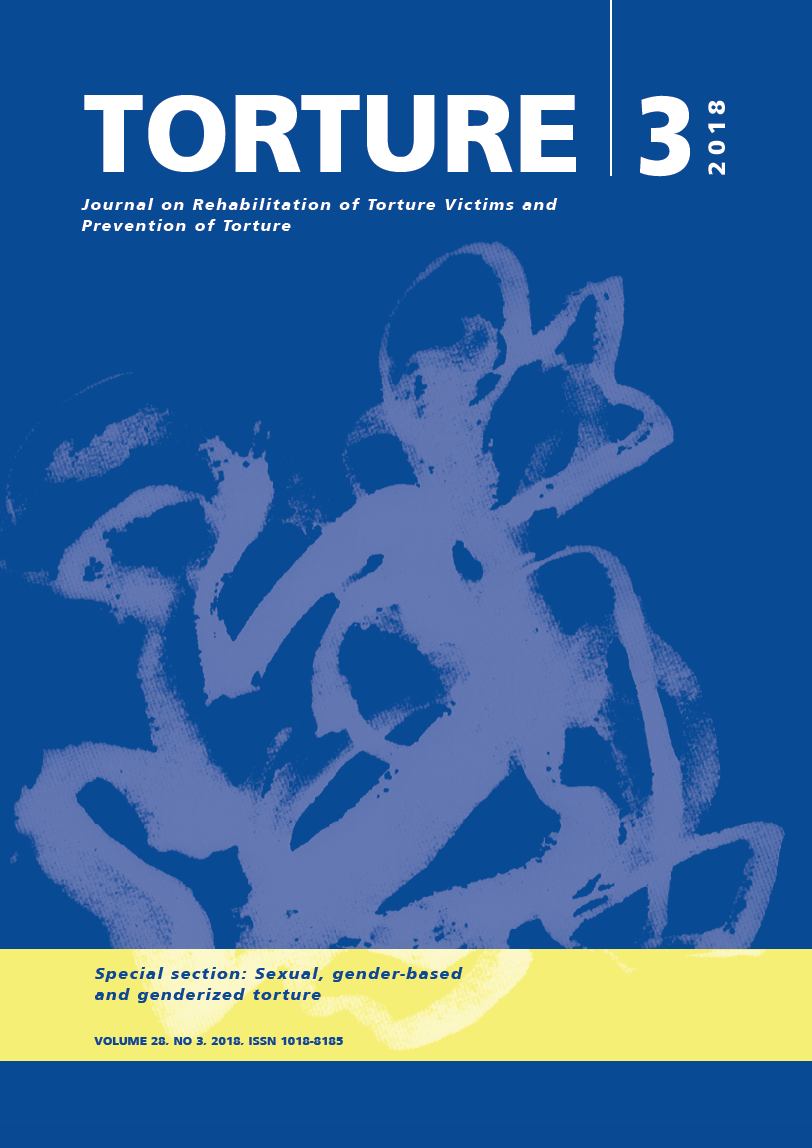Voices of torture survivors in Tanzania: A qualitative study
DOI:
https://doi.org/10.7146/torture.v28i3.111199Keywords:
Tanzania, torture, voice, qualitative research, prisonersAbstract
Introduction: No published research has been found on torture in Tanzania, but individual cases were documented by human rights organisations. The aim of this study was to explore the salient physical, mental and social effects of torture in the country, and help-seeking behaviour by giving voice to a group of torture survivors in Dar-es-Salaam and Zanzibar City (Zanzibar). Methods: This explorative qualitative study consisted of 14 semi-structured in-depth interviews (12 males, 2 females) of which eight took place in Dar-es-Salaam and six in Zanzibar. Informants were selected purposefully through a mix of snowball and convenience sampling. Both the Standards for Reporting Qualitative Research (SRQR) and the Consolidated Criteria for Reporting Qualitative Research (COREQ) were followed. Results: Using the UNCAT definition of torture, all informants reported having been tortured within the past two years. The most common form of torture was beating with clubs to the joints. Other torture included, but was not limited to, gun shot, toenail removal and ‘poulet roti’. The most common physical consequence was persistent pain. Psychological consequences included suicidal ideation and sleep problems. Most interviewees lost their jobs as a result of the torture incident, instigating a cascade of financial and social problems. Conclusion: The findings present informants’ exposure to deliberate torture at the hands of public authorities. Informants confirmed their exposure to torture methods that had been previously reported by nongovernmental organisations. They also talked about exposure to more advanced, and previously undocumented, torture methods. Informants displayed a dire need for mental and physical health care, but had limited access to such care. Research is needed to better understand the magnitude, prevalence and context of torture in Tanzania.
Downloads
Published
How to Cite
Issue
Section
License
We accept that some authors (e.g. government employees in some countries) are unable to transfer copyright. The Creative Commons Licence Attribution-NonCommercial-NoDerivatives 4.0 International (CC BY-NC-ND 4.0) covers both the Torture Journal and the IRCT web site. The publisher will not put any limitation on the personal freedom of the author to use material contained in the paper in other works which may be published, provided that acknowledgement is made to the original place of publication.


